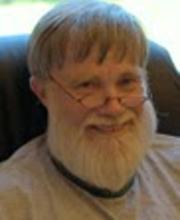Howard Georgi
Master of Leverett House
Director of Undergraduate Studies

Howard Georgi has ongoing research programs in several areas of theoretical particle physics. The common elements in these areas are symmetries and quantum field theory. Georgi pioneered the subject of Grand Unified Theories, both without (with Sheldon Glashow) and with supersymmetry (with Savas Dimopoulos), invented the modern QCD quark model (with Glashow and Alvaro De Rujula), the chiral quark model (with former student Aneesh Manohar), and the Heavy Quark Effective Theory.
The most important issue in particle physics today is the question of what causes the spontaneous breaking of the SU(2) x U(1) symmetry of the electroweak interactions. Georgi (who with former student David Kaplan showed how one could build composite Higgs bosons) studies the possibility of strong coupling models and attempts to find new mechanisms of symmetry breaking.
He also studies QCD, the formalism of effective field theories, the strong CP problem, and the flavor puzzle.
Recently, Georgi has been exploring the properties of theories in which a scale-invariant sector of the world is weakly coupled to the standard model. In the scale invariant sector, energy and momentum is not bundled in particles, so Georgi dubbed this strange situation "unparticle physics." (DOI: 10.1103/PhysRevLett.101.131603)
In addition, Georgi is interested in increasing the participation of women and minorities in science and is on a number of local and national committees that attempt to address this important issue.
